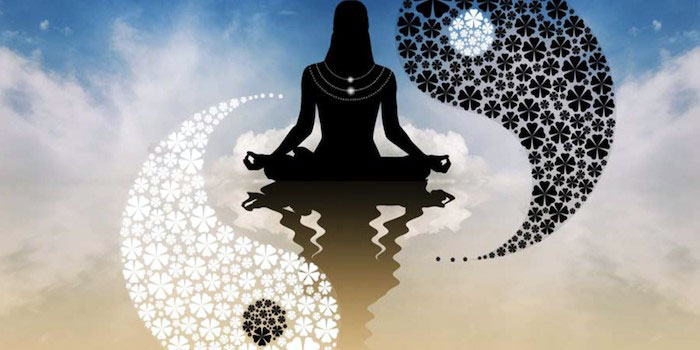
Enjoying Myself
‘I was enjoying myself in thinking about the commencement of things.’
‘What do you mean?’
‘My mind is so cramped that I hardly know it;
my tongue is so tied that I cannot tell it;
but I will try to describe it to you as nearly as I can.
When the state of Yin was perfect, all was cold and severe;
when the state of Yang was perfect, all was turbulent and agitated.
The coldness and severity came forth from Heaven;
the turbulence and agitation issued from Earth.
The two states communicating together,
a harmony ensued and things were produced.
Someone regulated and controlled this,
but no one has seen his form.
Decay and growth; fulness and emptiness;
darkness and light;
the changes of the sun and the transformations of the moon:
these are brought about from day to day;
but no one sees the process of production.
Life has its origin from which it springs,
and death has its place from which it returns.
Beginning and ending go on in mutual contrariety
without any determinable commencement,
and no one knows how either comes to an end.
If we disallow all this,
who originates and presides over all these phenomena?’
Zhuangzi by Zhuang Zhou, trans. by James Legge
This delightful and strange story is near the end of the Zhuangzi. Confucius visits Lao Dan a philosopher of reputation. He arrives into Lao Dan’s presence immediately after Lao Dan has finished washing his hair. He observes Lao Dan standing motionless, while his hair drys. Confucius waits patiently, noting the other man seems as settled in repose as an old tree stump. Then Lao Dan acknowledges Confucius and explains his reverie to his friend, and fellow philosopher. I imagine the men were friends.
Is the end achievement, the supreme justification for philosophy nothing else but ineffable enjoyment, satisfaction of soul that cannot be communicated by words? This passage suggests that is so.
There is no beginning and no end of the congruence of opposites. Upon first blush life impresses as the contrary of death, the frigidity and rigidity of cold seems in diametric opposition to the turbulent undulation of life forces. Are these opposites though? I suspect that we are seduced by language here.
Between the Yin and the Yang, the darkness and the light, there is no more underlying mechanism, no one behind the curtain, veiled from our observation. There is mutuality and there is no possibility of indicating a line-of-division, a strict beginning or clear ending of life and of death, of sunrise and of sunset.
From time to time how can one not be struck motionless with awe?
Even when waiting for one’s hair to dry.